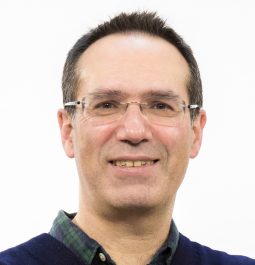Apresentação
The MA History in the Public Sphere (HIPS) is an academic joint venture between NOVA University, through NOVA FCSH, and the Central European University (Austria and Hungary), Tokyo University of Foreign Studies (Japan) and University of Florence (Italy), funded by the Erasmus Mundus Plus of the European Union and the Inter-University Exchange Project (IUEP) of the Japanese Ministry of Education, Culture, Sports, Science and Technology (MEXT).
HIPS is a taught, English-language research degree. It combines an exploration of the past from the early modern period to the present with the study of its public representations in today’s world. Its main objective is to bring together historical scholarship and civic engagement in order to prepare students for careers in producing, translating, and disseminating historical knowledge through archives, museums, journalism, broadcasting, and digital communication. It draws on the most up-to-date historiography, offering students different ways of studying local contexts in dialogue with transnational and global developments.
At the same time, the degree program offers students a professional environment to acquire practical experience in the participating universities own archival resources, audio-visual courses, and media education, as well as their close collaboration with national cultural institutions and private foundations.
The program seeks not only to critically assess the public uses of history, but also to enable young people to contribute to public displays of the past in a self-reflexive way through their professional education and practical experience. Therefore, the program combines an in-depth methodological and theoretical training in comparative history with hands-on training in the methods and practices of bringing historical knowledge to the public sphere, for instance, by historically informed journalism, documentary film-making, curating exhibitions, or creating educational online resources.
For a more comprehensive view of the Programme, check the Master's official website here. The «Lisbon semester» of this international programme brings together an inter-disciplinary team of FCSH NOVA professors who are responsible for five different curricular units and three short practical courses. They are all open to NOVA students up to a limited number of places.
HIPS Courses Offered in the Fall Semester 2023 by NOVA FCSH:
- Western European Empires - From Colonial Past to the Postcolonial World (mandatory course)
- The History of Politics and the Politics of History (elective course)
- Museums as Spaces of Memory, Identity, and Activism (elective course)
- History in the Media: Contesting, Commemorating, Resignifying (elective course)
- Filming the Past: the case of Portuguese Documentary Film (elective course)
- Oral History: Theories and Methods (short course)
- Essentials of Archival Research (short course)
- Digital and Spatial Humanities for Historians (short course)
While at NOVA FCSH, HIPS students have to complete the following courses:
- Mandatory course: Western European Empires – From Colonial Past to Postcolonial World (core course; mandatory): 8 ECTS
- One elective course: 8 ECTS
- Practical experience and skills (internship, learning, archival, organizational, and curatorial experiences): 8-10 ECTS (students can acquire 4 ECTS through the internship and attend two short courses, each granting 2 ECTS)
- Final project consultations: 6 ECTS.
Vagas
Unidades de Investigação Associadas
Estrutura curricular
Length: 4 semesters.
Students are required to earn 120 ECTS throughout the program, which includes studying at four different universities: Central European University (CEU) during the first semester, Tokyo University of Foreign Studies (TUFS) during the second semester, and either Universidade NOVA de Lisboa - NOVA FCSH or Università degli Studi di Firenze (UNiFI) during the third semester. For the fourth semester, students may choose to study at either CEU/TUFS, NOVA FCSH/TUFS, or UNIFi/TUFS. During the third semester, when students can opt to study at NOVA, the program maintains its interdisciplinary focus by having instructors from the History, Art History, Media and Anthropology departments participate.



